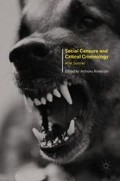Abstract
Modernity equates with the Enlightenment and how the principles of science established reason as the primary component of life, rejecting the transcendental as a guiding force. This faith in reason was the dominant principle of the early social sciences that developed along specific lines whether these involved, positivism, functionalism or idealism.
Access this chapter
Tax calculation will be finalised at checkout
Purchases are for personal use only
References
Achard, P. (1995). Formation discursive, dialogisme et sociologie. Langages, 117, 82–86.
Althusser, L. (1965). Pour Marx. Paris: Maspero.
Althusser, L. (1968). Lire Le Capital. Paris: Maspero.
Althusser, L. (1971). Lenin and philosophy and other essays. London: New Left Books.
Bachelard, G. (1972). L’engagement rationaliste. Paris: PUF.
Bakhtin, M. M. (1981). The dialogical imagination. Austin: University of Texas Press.
Benveniste, E. (1966). Problemes de la Linguistique Générale. Paris: Gallimard.
Canguilhem, G. (1966). Le Normal et la Pathologique. Paris: PUF.
Courtine, J. (1981). Analyse du discours politique: Quelques problèmes théoriques et méthodologiques en analyse du discours, à propos du discours communiste adressé aux chrétiens. Langages, 62, 127.
Crenshaw, K., et al. (1995). Critical race theory: The key writings that formed the movement. New York: New York Press.
Culioli, A. (1990). Pour une linguistique de l’ énnonciation: Opérations et représentation (Vol. 1). Paris: Ophrys.
Culioli, A., Fuchs, C., & Pecheusx, M. (1970). Considérations théoriques à propos du traitement formel du langage. Documents de Linguistique Quantitative, 7, 1–4.
Dreyfus, H. L., & Wrathall, M. A. (2005). A companion to Heidegger. Oxford: Blackwell.
Ewald, F. (1989). Un pouvoir sans dehors. In na, Michel Foucault philosophe: Recontre Internationale (pp. 196–203).
Foucault, M. (1969). L’Archéologie du savoir. Paris: Gallimard.
Foucault, M. (1994). The punitive society. In P. Rabinow (Ed.), Essential works of Foucault 1954–1984, ethics (Vol. 1, pp. 22–37). London: Penguin.
Husserl, E. (1970). Logical investigations. London: Routledge and Kegan Paul.
Lacan, J. (1966). Ecrits I. Paris: Seuil.
MacKinnon, C. A. (1987). Feminism unmodified: Discourses on life and law. Cambridge: Harvard University Press.
Nadler, S. (2001). Spinoza: A life. Cambridge: Cambridge University Press.
Nietzsche, F. (1969). The genarology of morals. New York: Random House.
Pecheux, M. (1975). La Vérité de la Palice. Paris: Maspero.
Pecheux, M. (1982). Language, semantics and ideology. London: Macmillan.
de Saussure, F. (1972). Cours de linguistique générale. Paris: Payot.
Sumner, C. (1979). Reading ideologies. London: Academic Press.
Taylor, C. (2005). Heidgger on language. In H. L. Dreyfus & M. A. Wrathall (Eds.), A companion to Heidegger (pp. 433–455). Oxford: Blackwell.
Williams, G. (1999). French discourse analysis: The method of post-structuralism. London: Routledge.
Williams, G., & Williams, G. O. (2016). Language, hegemony and the European Union. London: Palgrave.
Wittgenstein, L. (1958). Philosophical investigations. Oxford: Balckwell.
Author information
Authors and Affiliations
Corresponding author
Editor information
Editors and Affiliations
Copyright information
© 2017 The Author(s)
About this chapter
Cite this chapter
Williams, G., Williams, G. (2017). Normativity and the Ontology of Being. In: Amatrudo, A. (eds) Social Censure and Critical Criminology. Palgrave Macmillan, London. https://doi.org/10.1057/978-1-349-95221-2_13
Download citation
DOI: https://doi.org/10.1057/978-1-349-95221-2_13
Published:
Publisher Name: Palgrave Macmillan, London
Print ISBN: 978-1-349-95220-5
Online ISBN: 978-1-349-95221-2
eBook Packages: Law and CriminologyLaw and Criminology (R0)

